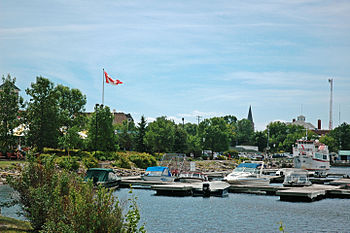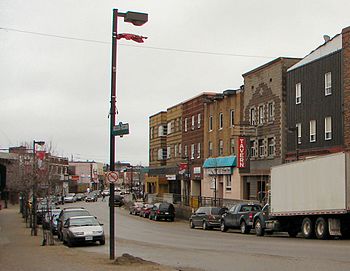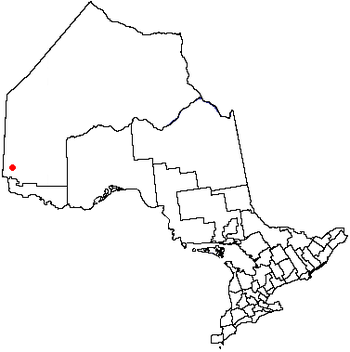 |
| Indian Tepee, Kenora, Ontario. (Photo credit: Wikipedia) |
 |
| Quay of Kenora, Ontario. (Photo credit: Wikipedia) |
 |
| Main street in Kirkland Lake, Ontario, Canada (Photo credit: Wikipedia) |
 |
| Map of Ontario, Canada, showing city of Kenora. (Photo credit: Wikipedia) |
 |
| Unchained Melody (Photo credit: Wikipedia) |
The other
day I noticed I was unconsciously humming in my head a dreadful tune called Unchained Melody. That really took me back, with a wrench, to
my first days in Canada.
I arrived
in September 1954, just over four years after my wife and I left our native
country, New Zealand, with the objective of taking a little look at the world,
and maybe doing something to improve it. We had lived and worked briefly in Australia,
India, England and Scotland before deciding to make our way home through Canada.
Of all the countries we had lived in, in any of which, as Commonwealth citizens,
we could have stayed for the rest of our lives, Canada was the first to require
any immigration procedure.
We had no
trouble being accepted since we conformed with what were the basic requirements
in those days: we were white, of good health, employable and had $50 between
us.
After a
couple of weeks in Toronto looking for a job as a journalist (“no, you have no
Canadian experience”) I was finally offered a job by the execrable Thomson
Newspapers in their execrable Northern
Daily News, in Kirkland Lake, just across the border from Rouyn in Quebec.
It says something about what you could buy with a Canadian dollar in those days
that after paying for a month’s rent on a small apartment, we had $11 left, and
the prospect of earning $45 a week in future. The fact was, Thomsons would give
a job to anybody who was willing to take the money. Everything was run from the
Toronto offie, and for the first time I found myself working for an
organization whose hatred of unions was so intense that they had invented a
mechanical system of putting the news on to teletype machines so that they
wouldn't have to hire actual printers. Our team of journalists who had ended up
there was varied and interesting. Under two people who were loyal long-term
employees of the company (one of them a recovering drunk), we had an Englishman
who was a descendant of William Wordsworth and a typical upper-crust British
character, educated in the best private schools, a Jamaican who kept his house at 85 degrees
all winter long, a South African refugee from apartheid who was married to a
New Zealand girl, and the photographer was a Latvian who later became famous in
Canada for his many books about the life of the Inuit, Fred Breummer. Fred,
incidentally, was one of the two people on that makeshift, peripatetic
journalistic staff who was eventually awarded the Order of Canada.
It was not
a particularly rewarding job for any journalist, and after three months I had
put together enough money to enable us to travel across to the other side of
Ontario, to Kenora, where my wife had obtained a teaching job with the nearby
Rabbit Lake school district, who were ready to pay her $1,500 for a year’s
work. Meantime I sat down to write the great New Zealand novel as we confronted
our first Canadian winter. This provided us with some very surprising
experiences. For example, as I sat looking out from the house I rented on the
edge of the Lake of The Woods (a lake unimaginably huge by New Zealand standards,
with 14,522 islands dotted around in it), I began to see huge trucks running
over the lake, borne by what must have been immensely thick ice, an event that
I would never in my previous life have even thought was remotely possible. People
kept coming in from across the lake on those whirlygig machines (the name of
which I have forgotten, but they are now referred to as flat-bottomed
airboats), propelled by a noisy propeller,
which could carry the vehicle over snow, ice or water.
Another
experience we had never had before occurred every Saturday morning after we had
bought two large paper bags full of groceries which we had to carry home around
the lakeshore, at the end of which we always had icicles growing out of our
noses.
It was in
Kenora that I first made the acquaintance of the most popular hit of the
moment, a dreadful song called Unchained
Melody, which the local Kradio station kept playing repeatedly, to the
point that it seemed to be playing every time I turned on the radio. I remember
the name of the disc jockey, Jim Kidd, and I had several fruitless conversations with him each time I phoned to
complain about their obsession with this one song. I had never before struck
this North American phenomenon, the hit parade, and had no conception that the
most popular radio stations of the day were more than ready to keep repeating
the same half dozen tunes throughout the day.
I have
never forgotten Kenora, however, and especially I have never forgotten the little
Swedish man from whom I rented the house by the lake. I was standing at a bus
stop on my return from looking at possible houses to rent when this little man
came up and started talking to me. When I said I was looking for a place to
live, he said, “Maybe you would like my house,” and he took me to look at it
immediately, offered it to me for a very reasonable price, and then he went
back up the lake, where he lived and worked as a trader with the local Indians.
He was an amazing little man. According to his daughter (a rather severe,
religiously-inclined woman), who lived in the next door house, he would “give
the shirt off his back to any Indian,” and that might well have been true. What
I did discover of him that was astonishing, however, was that he would take a
bottle of Scotch up the lake with him, and bring it back when he next came to
town three months later. However, while in town, he would go on a bender of
such wholesome intensity that after a few days his wife and family would have
to put out a search party for him. They always found him, usually in the
street, drunk as a lord, and took him home to clean him up for his return
uplake. Years later, when I returned to Kenora and was in contact with the
local Ojibways, I discovered that quite a few of the local status Indians bore
his name.
I quit
Kenora after six months, abandoned my novel-writing career, and took a job
offered to me in the Winnipeg Free Press.
But one
thing I would never have expected from my experiences in Kenora was that more than half a century later the accursed Unchained Melody would be considered a
sort of undying popular music classic. Shows how much I know!
No comments:
Post a Comment